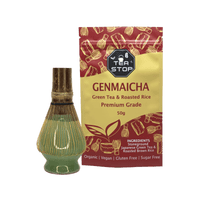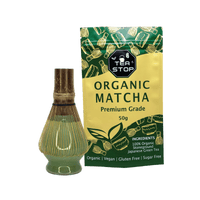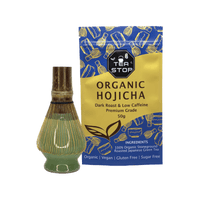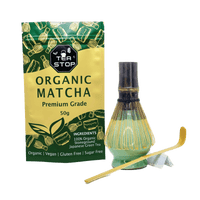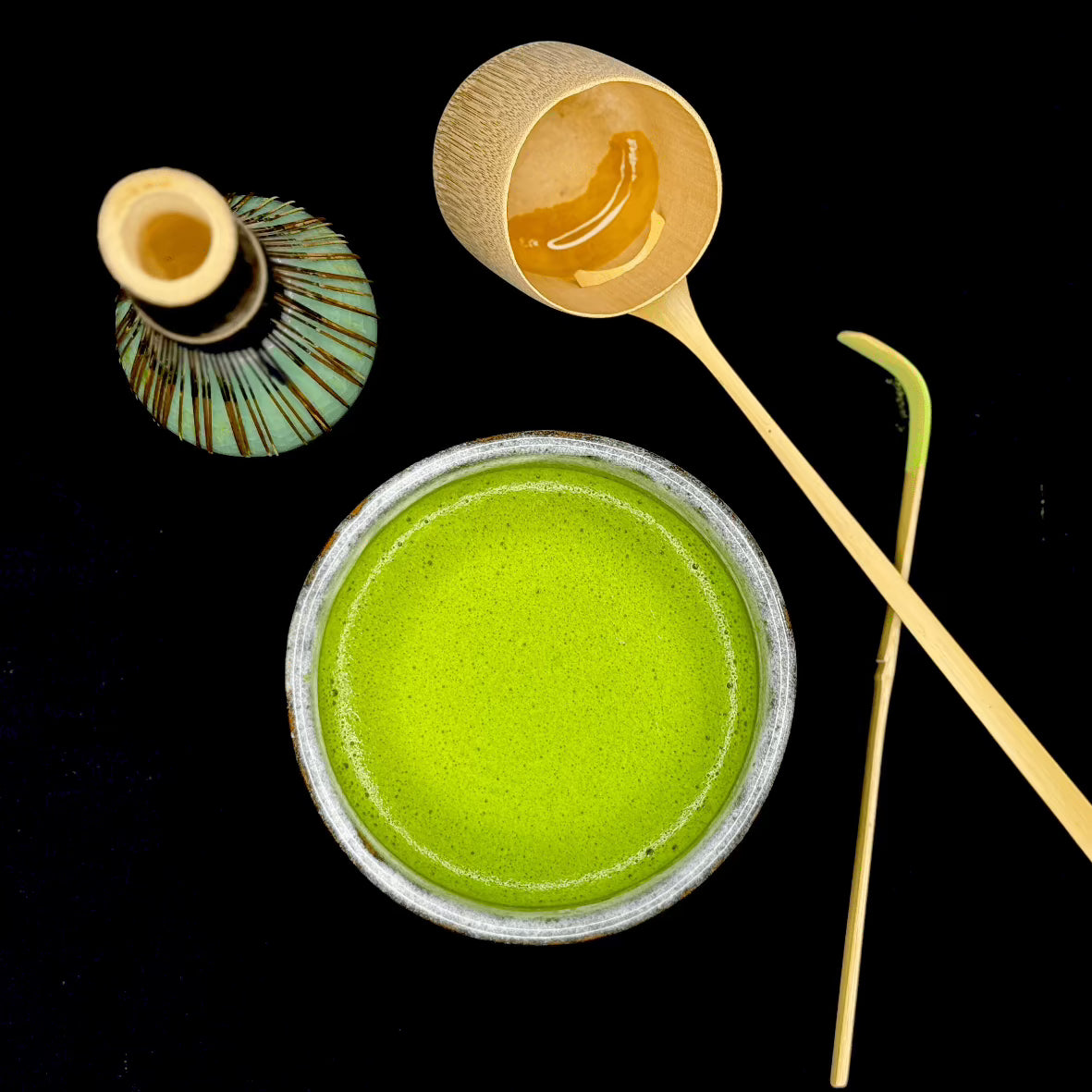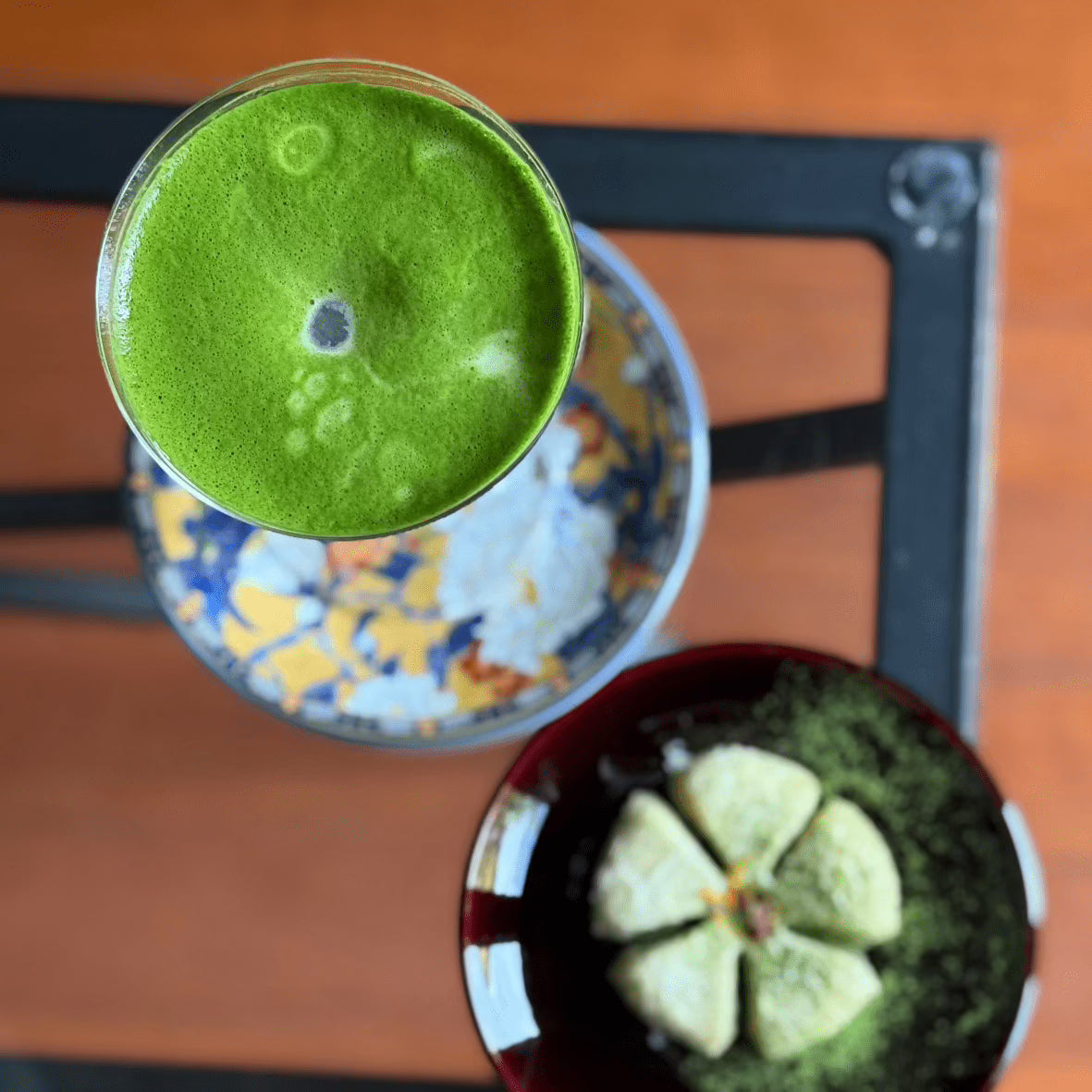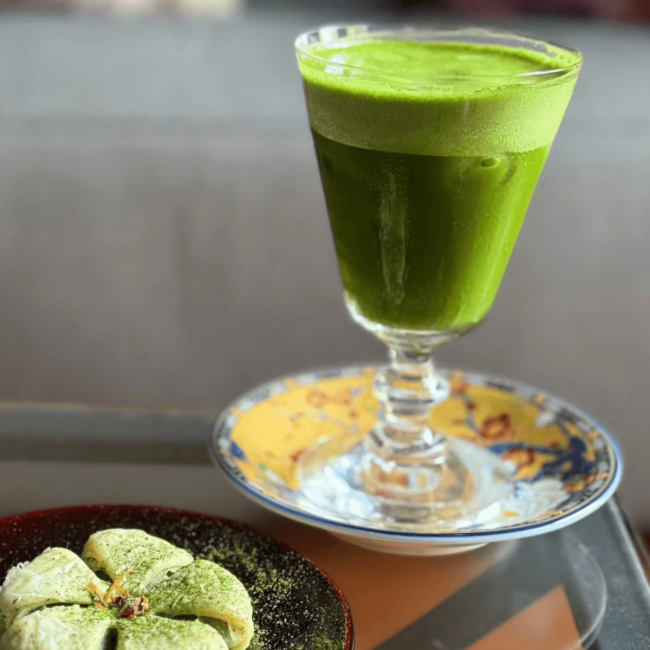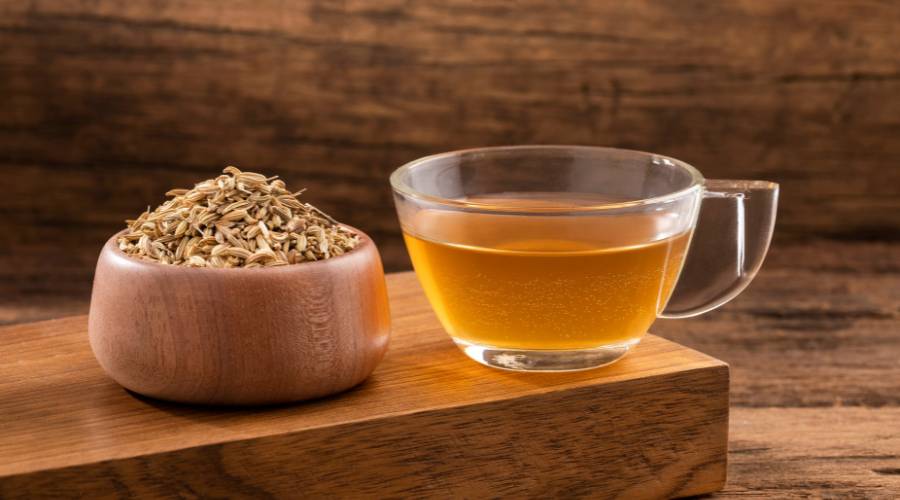
Health Benefits of Tea Varieties
Share
Tea is a beloved beverage worldwide, cherished for its rich flavors and comforting warmth. But tea is more than just a delicious drink—it's also associated with numerous health benefits that interest both health enthusiasts and casual drinkers. Understanding these benefits can enhance your appreciation and enjoyment of this ancient beverage.
The world of tea is vast and diverse, with each variety offering unique flavors and health advantages. From black tea, with its bold taste, to the subtle qualities of white tea, every type has something special to offer. Tea's health benefits are as diverse as its teas themselves, including antioxidant properties and digestive aids.
Exploring different tea varieties reveals a wide range of flavors and potential wellness benefits, making it an exciting journey for any tea lover. Join us as we delve into the many ways in which tea can contribute to a healthier lifestyle.

1. Understanding Tea Types
Tea is a popular drink worldwide, available in different varieties, each with its unique qualities and health advantages. There are two main categories of tea: true teas and herbal teas.
True Teas
True teas come from the Camellia sinensis plant and include well-known types such as black, green, oolong, white, and pu-erh. The key difference among these teas lies in their processing techniques, which influence their taste and nutritional value.
Herbal Teas
In contrast, herbal teas do not come from the Camellia sinensis plant. Instead, they are made by steeping herbs, spices, flowers, or fruits in hot water. Popular examples of herbal teas are chamomile, peppermint, and hibiscus.
The nutritional content of tea varies based on its type:
- Black tea: Known for its strong flavor and higher caffeine content compared to other true teas.
- Green tea: Renowned for its abundance of catechins and antioxidants.
- Herbal teas: Generally caffeine-free and often possessing specific health benefits associated with the ingredients used.
By understanding these differences, you can make better decisions about which tea is most suitable for your health requirements.
2. Health Benefits of Black Tea
Black tea is a popular beverage enjoyed by many people around the world. It is known for its strong flavor and dark color. Black tea is the most widely consumed tea globally, with well-known varieties such as Earl Grey and English Breakfast leading the way.
What makes black tea unique is its high content of antioxidants called theaflavins and thearubigins. These beneficial compounds are formed during the oxidation process that occurs when black tea is made.
Antioxidants in Black Tea
Theaflavins and Thearubigins: These antioxidants play a crucial role in promoting overall health by neutralizing harmful free radicals in the body.
Potential Health Benefits
- Heart Health: Regular consumption of black tea has been associated with improved cardiovascular health, potentially reducing the risk of heart disease.
- Cancer Risk Reduction: Some studies suggest that the antioxidants in black tea may contribute to a lower risk of certain types of cancer.
Incorporating black tea into your daily routine can be both a delicious and beneficial choice for your health.
3. Health Benefits of Green Tea
Green tea is known for its unfermented nature, which means it retains high levels of natural compounds that contribute to its unique flavor and health benefits. This type of tea is rich in catechins, a kind of antioxidant that plays a crucial role in promoting health. The catechins in green tea are especially effective in fighting oxidative stress, which can lead to chronic diseases.
Green Tea and Chronic Disease Prevention
Studies have shown significant evidence supporting the consumption of green tea for preventing chronic diseases. Here are some key findings:
- Regular intake has been linked to a lower risk of heart disease.
- Green tea may help improve blood flow and lower cholesterol levels.
- The health benefits of green tea also include better brain function and weight management.
Incorporating Green Tea into Your Lifestyle
If you're looking for ways to prevent chronic diseases and boost your overall health, consider adding green tea to your daily routine. Here are some tips on how to do so:
- Start your day with a cup of green tea instead of coffee.
- Replace sugary beverages with unsweetened green tea.
- Experiment with different flavors by adding lemon or mint to your green tea.
By making these small changes, you can enjoy the potential health benefits of green tea while also making healthier choices in your lifestyle.
4. The Unique Benefits of Oolong Tea
Oolong tea stands out due to its partial fermentation process, which bridges the gap between green and black teas. This unique processing method gives oolong its distinctive flavor profile, offering a balance of floral and fruity notes with a hint of earthiness. It's an exquisite choice for those who enjoy a complex taste experience.
The antioxidants in oolong tea play a significant role in promoting heart health and supporting metabolic function. These antioxidants, including polyphenols, help reduce cholesterol levels, thus contributing to cardiovascular wellness. Oolong tea is also associated with improved metabolism, making it a popular choice for individuals looking to manage their weight naturally.
Incorporating oolong tea into your daily routine can be a delightful way to support overall health while enjoying its rich and layered flavors. With each sip, you're not just indulging in a beverage but embracing a tradition that marries taste with numerous health benefits.
5. The Delicate Advantages of White Tea
White tea stands out for its delicate flavor and subtle aroma, resulting from its unique production process. Harvested from the young leaves and buds of the Camellia sinensis plant, white tea undergoes minimal processing. This gentle approach preserves the integrity of the leaves, ensuring a naturally sweet taste and a light golden hue in your cup.
1. Production Process
Young leaves are carefully handpicked before they fully open and are then allowed to wither under natural sunlight. This minimal oxidation process is what distinguishes white tea from other varieties.
2. Antioxidant Content
Renowned for its high antioxidant levels, particularly catechins and polyphenols, white tea offers potent protective effects against various diseases. Antioxidants play a crucial role in neutralizing free radicals, thereby supporting overall health and reducing the risk of chronic illnesses.
Embracing white tea as part of your daily routine not only provides an exquisite sensory experience but also contributes to long-term wellness through its numerous health benefits.
6. Exploring Pu-erh Tea Benefits for Digestive Health and Cholesterol Reduction
Pu-erh tea, a unique fermented variety originating from Yunnan Province, China, is known for its rich, earthy flavor and distinctive health benefits. This tea goes through a lengthy fermentation process that increases its probiotic content, which greatly benefits digestive health.
Digestive Benefits
- The fermentation process encourages the growth of beneficial bacteria, aiding in digestion and improving gut flora balance.
- Regular consumption of pu-erh tea can relieve symptoms related to indigestion and bloating.
Cholesterol Reduction
- Studies indicate that drinking pu-erh tea may help lower LDL cholesterol levels, potentially decreasing the risk of heart disease.
- The presence of lovastatin-like compounds in pu-erh helps in managing cholesterol effectively.
This combination of taste and health benefits makes pu-erh a valuable addition to your daily routine. Its unique qualities not only offer a comforting drink but also contribute positively to overall well-being.

7. Herbal Teas and Their Health Benefits for Digestion, Relaxation, and More!
Herbal teas offer a wide range of flavors and health benefits that go beyond traditional tea made from the Camellia sinensis plant. These teas are made from various herbs, fruits, flowers, seeds, or roots, each with its unique benefits for different health needs.
Chamomile Tea
Chamomile tea is known for its calming effects. This soothing brew is often recommended for relaxation and improving sleep quality. The presence of antioxidants such as apigenin contributes to its sedative properties, making it an excellent choice for those seeking relief from stress and insomnia.
Peppermint Tea
Peppermint tea is another popular herbal choice known for its refreshing taste and digestive benefits. It is widely used to alleviate symptoms like bloating, gas, and nausea. The active ingredient menthol has been studied for its ability to relax the gastrointestinal tract muscles, providing effective relief from digestive discomfort.
Hibiscus Tea
Hibiscus tea stands out with its vibrant color and tart flavor. Beyond its sensory appeal, this tea has been linked to cardiovascular health benefits. Research suggests that hibiscus can help lower blood pressure due to its diuretic properties and ability to promote better circulation. It is also rich in antioxidants which support heart health.
Ginger Tea
Ginger tea offers a warm, spicy flavor profile along with substantial medicinal benefits. Known for easing digestive discomfort and nausea, ginger contains gingerol—a compound with anti-inflammatory and antioxidant effects. This makes it particularly effective in settling an upset stomach or alleviating motion sickness.
By exploring these diverse herbal options, you can enjoy not only delightful flavors but also distinct health benefits tailored to your needs. Whether you're aiming for digestive relief, seeking calming effects, or supporting cardiovascular health, there's likely a herbal tea that aligns perfectly with your wellness goals.
8. The Role of Antioxidants in Tea for Overall Health Protection
Antioxidants are essential substances that fight oxidative stress in the body, safeguarding cells from harm caused by free radicals. These antioxidants, which are abundant in various teas, play a crucial role in promoting health and preventing diseases.
Types of Antioxidants in Tea
Different types of tea have different kinds of antioxidants. Here are some examples:
- Green tea is packed with catechins, especially epigallocatechin gallate (EGCG), which is known for its powerful health benefits.
- Black tea contains theaflavins and thearubigins.
- Oolong tea has a combination of both catechins and theaflavins.
- White tea, which undergoes minimal processing, retains high amounts of polyphenols.
Health Protection Benefits
The presence of these potent antioxidants greatly contributes to overall health protection:
- Heart Health: Drinking antioxidant-rich teas regularly can help lower LDL cholesterol levels and improve artery function.
- Cancer Prevention: Antioxidants may lower the risk of certain types of cancer by inhibiting tumor growth.
- Anti-Aging Properties: By reducing oxidative stress, antioxidants promote skin health and slow down signs of aging.
Incorporating tea into your daily routine can be a delightful way to include these beneficial compounds in your diet and support a healthier lifestyle.
9. Best Practices for Brewing Different Teas to Maximize Their Benefits
Understanding the brewing instructions for different teas is crucial to unlocking their full potential and maximizing their health benefits. Each type of tea requires specific brewing conditions to ensure optimal flavor and nutrient extraction.
Ideal Brewing Temperatures
- Green/White Tea: Brew at a lower temperature, ideally between 70-80°C. This helps preserve the delicate flavors and antioxidants.
- Black/Herbal Tea: A higher temperature of 90-100°C is recommended. These teas can withstand more heat, which aids in releasing their robust flavors.
Recommended Steeping Times
To enhance the health benefits of tea, it's important to adhere to the recommended steeping times:
- Green Tea: Steep for about 2-3 minutes. This short duration prevents bitterness while extracting beneficial catechins.
- Black Tea: Allow a steeping time of 3-5 minutes to fully develop the rich taste and antioxidant properties.
- Herbal Tea: A longer steeping time of 5-7 minutes is often needed to draw out the full range of flavors and therapeutic compounds.
Adhering to these guidelines not only elevates your tea-drinking experience but also ensures you reap the maximum health benefits from each cup. Consistently using the right temperatures and times enhances both flavor and nutritional value, contributing significantly to overall well-being.
Conclusion
The various health benefits of tea can greatly improve your wellness journey. Each type of tea, whether it's black or herbal, has its specific advantages that can help you live a healthier life. Whether you're looking for antioxidants or support for your digestion, making these teas a regular part of your day will lead you to a delicious and healthy lifestyle.
By trying out different kinds of tea, you'll be able to find the perfect brew that matches your health objectives. We offer top-quality organic teas sourced from the finest gardens around the world, so you can indulge in exceptional taste and fragrance while putting your health first.
FAQs (Frequently Asked Questions)
What are the main health benefits of tea?
Tea is known for its numerous health benefits, including antioxidant properties, support for heart health, and potential reduction in chronic disease risk. Different varieties of tea, such as black, green, oolong, and white, offer unique health advantages due to their distinct nutritional profiles.
What is the difference between true teas and herbal teas?
True teas are derived from the Camellia sinensis plant and include varieties like black, green, oolong, and white tea. Herbal teas, on the other hand, are made from a variety of herbs, spices, and flowers and do not contain leaves from the Camellia sinensis plant. This distinction affects their flavor profiles and health benefits.
How does black tea contribute to heart health?
Black tea contains antioxidants such as theaflavins and thearubigins that promote heart health by potentially reducing cholesterol levels and lowering the risk of heart disease. Regular consumption may also help lower blood pressure.
What are catechins in green tea and why are they important?
Catechins are a type of antioxidant found in green tea that play a significant role in promoting health. They are believed to reduce the risk of chronic diseases such as heart disease and certain cancers by combating oxidative stress in the body.
What makes oolong tea unique compared to other types of tea?
Oolong tea undergoes a partial fermentation process which gives it a distinct flavor profile that lies between black and green tea. It contains antioxidants that support metabolic function and heart health, making it beneficial for overall wellness.
How can I brew different types of tea to maximize their health benefits?
To maximize the health benefits of different teas, it is essential to follow specific brewing instructions. For example, green and white teas should be brewed at lower temperatures (160-185°F) with shorter steeping times (1-3 minutes), while black and herbal teas can be brewed at higher temperatures (200-212°F) for longer (3-5 minutes). This ensures optimal flavor extraction and preserves their beneficial properties.

